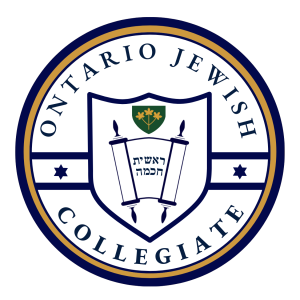 The Hebrew University of Jerusalem will expand its institute for medical research thanks to $50 million in funding from Canadian Friends of the Hebrew University (CFHU.)
The Hebrew University of Jerusalem will expand its institute for medical research thanks to $50 million in funding from Canadian Friends of the Hebrew University (CFHU.)
David Lichtstein, the new chairman of the Institute for Medical Research Israel-Canada at Hebrew University, will receive $50 million over the next 10 years for his department.
About six months ago, CFHU, a national, non-profit organization that supports Hebrew U, pledged to donate $50 million to the university over the next 10 years. The money will allow the medical institute to finally finish erecting its new building and bring all its research arms under one roof, and it will allow it to restructure itself to encourage innovation.
“We are the largest medical institution in Israel. Our scientists are really outstanding scientists,” said Prof. David Lichtstein, the newly appointed chairman of the institute, which has been renamed to the Institute for Medical Research-Israel Canada (IMRIC). “[The institute] has not been thought about or changed for 40 to 50 years. There was stagnation going on. It wasn’t shaken up. From a physical point of view, we didn’t have any construction or renovations.”
While construction of a new building began years ago, only two floors were built when construction ground to a halt. Since then, the building, located on Hebrew U’s Ein Kerem campus and called the Octav and Marcela Botnar Research Building, has remained unchanged.
“Hebrew University decided it’s time to make some progress,” Lichtstein said during a recent visit to Canada. “I would say it was an idea that was there for a long time. We have a very aggressive dean, when he thinks something, it has to be achieved. The president made a decision [and decided that] this is where [the university’s] priorities should be.”
The university began to look overseas for funding, and the CFHU responded. Merle Goldman, associate national director of CFHU, said the organization was looking for a project that was important for both the university and Canada.
“This will impact the world at large. It will affect mankind,” Goldman said. “It’s exciting, innovative, cutting edge and relevant.”
The IMRIC receives around $18 million of competitive grants every year. Its scientists are skilled and their students are highly successful, yet the department was unable to grow until recently.
CFHU hopes to support IMRIC in a number of ways.
“We will do our best to build research, to help facilitate the building and researchers in Canada, to try to publicize it here, to enhance and strengthen relationships between the committee and donors,” Goldman said. “When you develop a relationship with an institution in Israel, you can be aware of how important Israel is to us as Jews.”
With CFHU’s funding, Lichtstein will develop new infrastructure for the research facility, a change he hopes will help unite faculty and encourage progress.
Currently, the IMRIC is made up of 83 active scientific groups, which will be organized into five departments, some of which have already been established. Each department will focus on specific areas of research.
Some of these new categories include a department of developmental biology –which will focus on diseases such as fetal alcohol syndrome, diabetes and cancer – and a department of microbiology and infectious diseases, which will focus on diseases such as malaria and mad cow disease.
“It’s more effective,” Lichtstein said of the new organizational structure, adding that departmental names are tentative. “If you get people working together, you’ll get new directions and new perspectives.”
About 30 to 33 of the scientific groups will be located in the Botnar building, which should be completed within two years, he said.
Other than construction, CFHU’s funds will be put toward academic activities such as purchasing new equipment, organizing seminars and retreats and helping new comers.
When asked where the university would be without the pledge, Lichtstein was very clear.
“Nothing would have changed. We wouldn’t be moving, we’d be going backwards.”






